Swansea City takeover: Fairytale story with a dose of reality
- Published
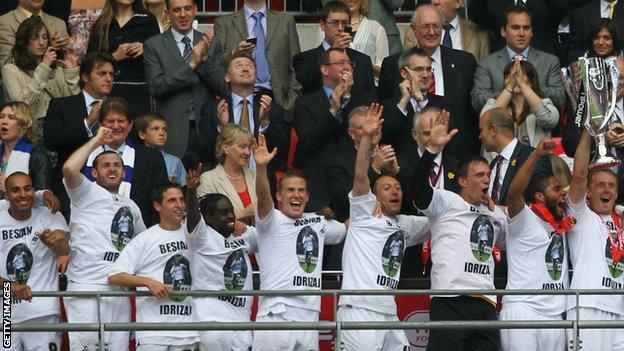
Swansea were promoted in the 2011 Championship play-off final by beating Reading 4-2 at Wembley
Every fairytale in the Premier League comes with a dose of reality, and Swansea City's is no different.
Their rise from the brink of oblivion to the top flight has been well documented and often lauded as a golden example for clubs aspiring to climb the leagues.
One of the story's most endearing elements is Swansea's ownership model, a board comprised of businessmen, most of whom are local, and a fan representing the supporters' trust.
But there is a growing sense that the current owners might have taken Swansea as far as they can, and the additional investment they need to keep the club progressing appears to be coming in the form of Americans Jason Levien and Steve Kaplan.
Levien, managing general partner of Major League Soccer team DC United, and Kaplan, an investor and vice-chairman of basketball franchise Memphis Grizzlies, would take the number of Premier League clubs primarily owned by Americans to five.

Swansea chairman Huw Jenkins will continue in his role
It seems they will take a collaborative approach. Huw Jenkins will stay as chairman, likewise Leigh Dineen as vice-chairman and, perhaps most importantly, Swansea City Supporters' Trust will retain its 21% share and seat on the board.
American ownership in the Premier League has yielded mixed results but, with the trust's influence intact, Swansea fans will feel the club's conscience will be protected at board level.
A familiar tale?
The supporters' representation has given the Swans' success a certain charm, a preservation of football's terrace culture in an era when the excessive wealth of the top flight has left some feeling disillusioned.
That appeal would not necessarily be impinged by foreign investment - Swansea, after all, would not be the first.
Leicester are on the cusp of causing one of football's greatest upsets as they are within only three wins, external of being crowned Premier League champions, and their remarkable transformation from relegation candidates to title contenders has been bankrolled by their billionaire Thai owners.
In no way would that diminish their achievement; it merely serves as a reminder of the financial reality behind any success story in the top flight.
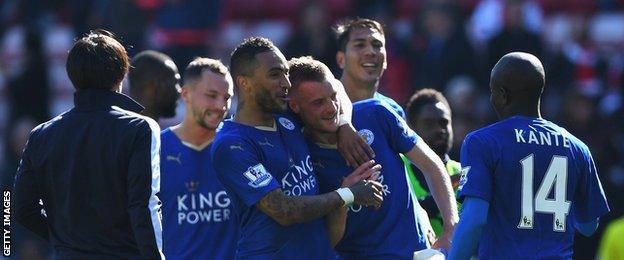
Leicester City's dramatic rise has been financed by their Thai owners
It is a similar tale for Bournemouth, who, like Swansea, were one game away from relegation to non-league football.
That was in 2009 and, by now, the Cherries can look forward to a second successive season in the Premier League.
Their initial rise was overseen by a local consortium, before Russian businessman Maxim Demin bought the then League One club in 2011.
How will the Americans invest?
Leicester and Bournemouth's spending has been sensible rather than lavish, and one of the most important questions facing Swansea is how - and how much - Levien and Kaplan will invest in the club.
Their deal for a controlling stake in the club is reportedly worth £100m, though it is unclear at this stage how that money will be spent.
First, they will have to complete the purchase of their shares, then they might consider buying and expanding the Liberty Stadium - which is owned by Swansea City council - before exploring ways of investing in the club's infrastructure and playing squad.
The expansion of the Liberty Stadium has been on Swansea's agenda for some time because its capacity of a little under 21,000, the second smallest in the Premier League, is a hindrance for the club.

James Thomas' hat-trick against Hull in 2003 preserved Swansea's Football League status
Bigger crowds will bolster revenue and Levien appears to grasp the importance of such matters, with DC United moving into a new football-specific stadium in 2018.
It will be interesting to see how close a relationship Swansea and DC United would form if Levien and Kaplan's deal is finalised.
The Swans would become the third Premier League team to share common ownership with an MLS franchise, following Arsenal and Manchester City, whose owners also own the Colorado Rapids and New York City FC respectively.
The American influence on British football is growing stronger but, with Jenkins and the supporters' trust retained, Swansea will hope they can preserve their identity in this marriage of old and new.
More from BBC Wales Sport |
|---|
- Published11 April 2016
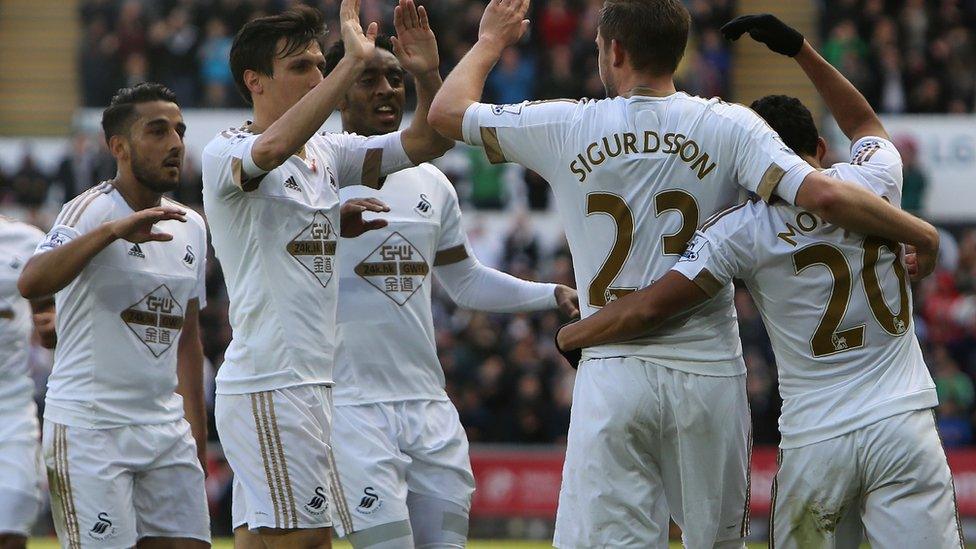
- Published10 April 2016
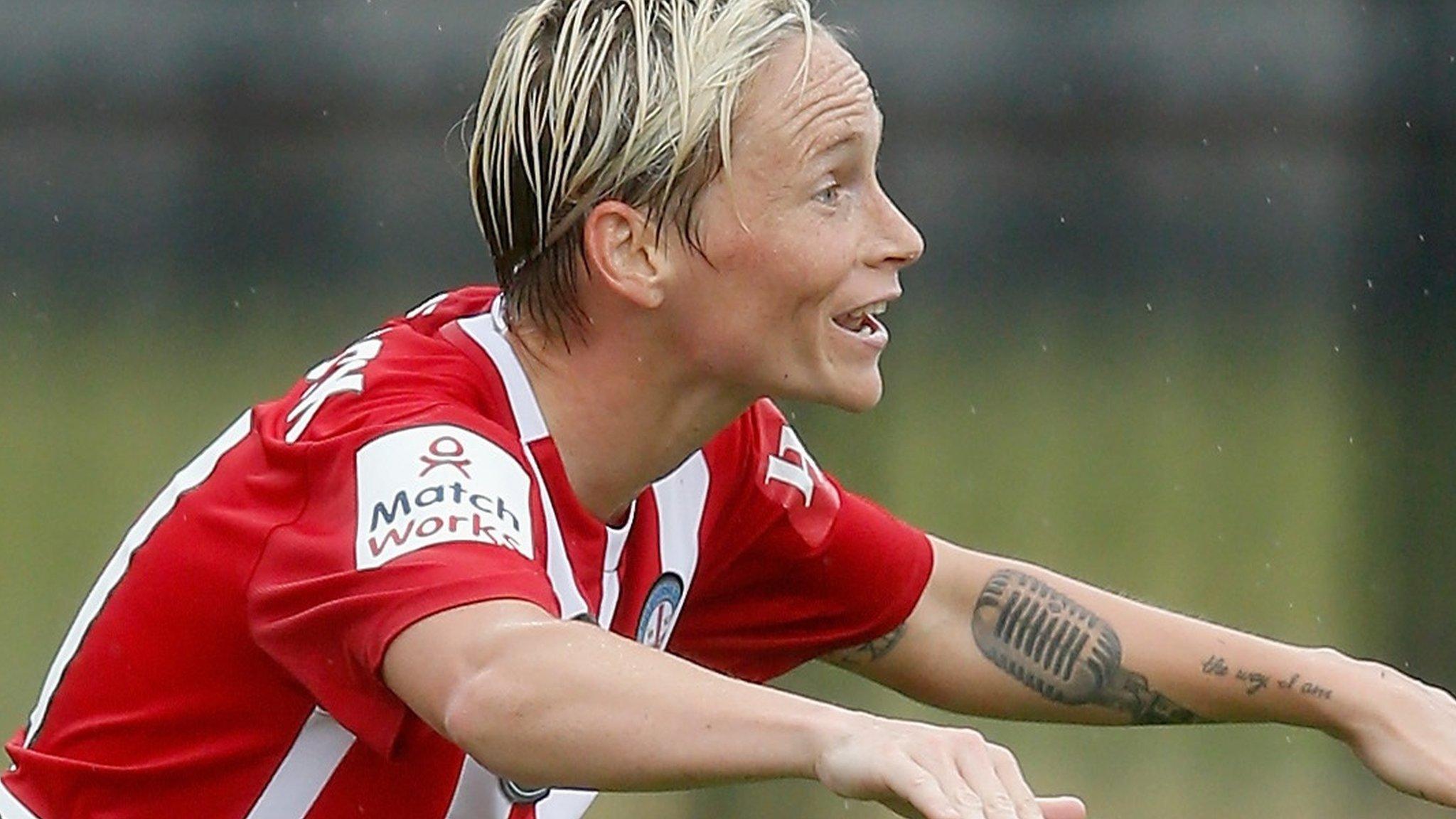
- Published10 April 2016
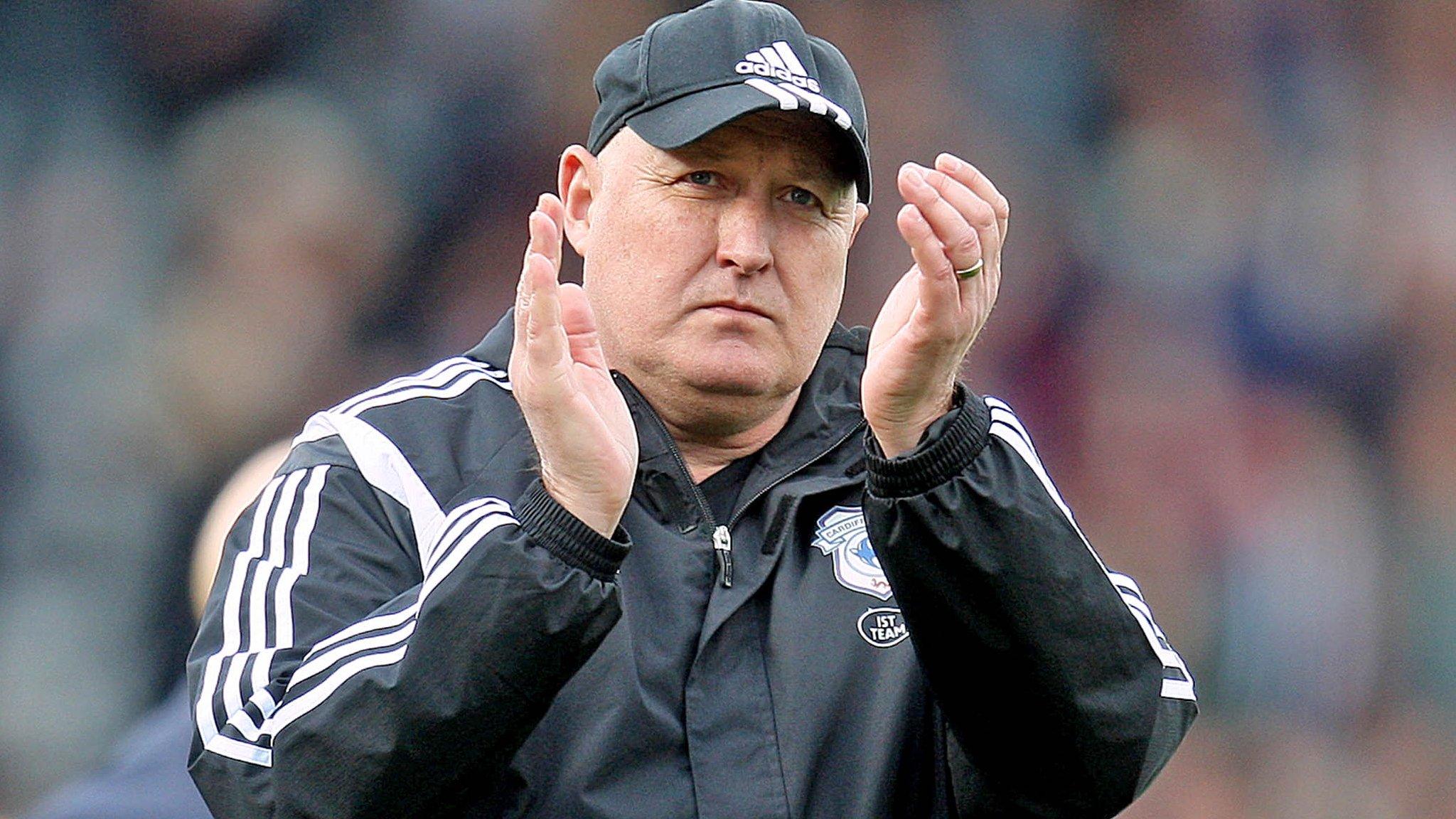
- Published20 June 2016

- Published7 June 2019
